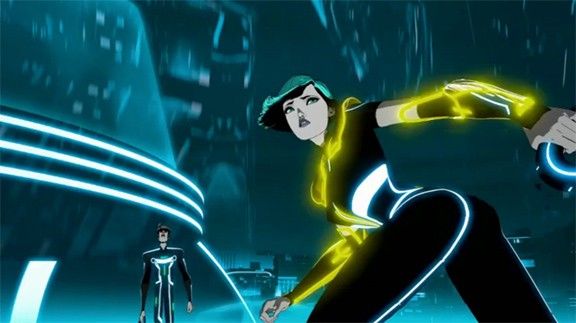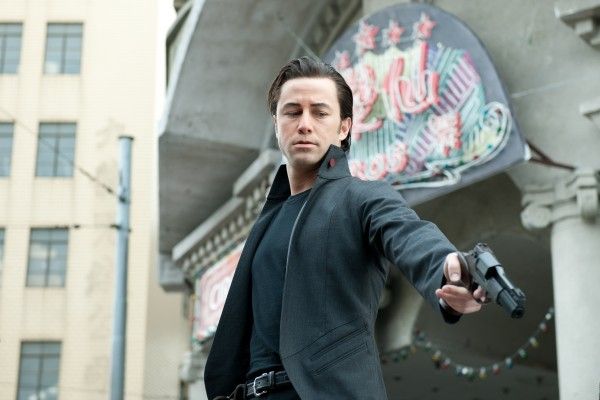Music is an incredibly important factor in film and television. That goes without saying, really, but discussions of music in depth and detail with the composers and collaborators that produce the music are rarely done. That’s why Room 5AB was a treat last night, as composer Blake Neely and executive producer Marc Guggenheim (Arrow), composer Chris Lennertz and showrunner Eric Kripke (Revolution, Supernatural), composer Joseph Trapanese and showrunner Charlie Bean (TRON: Uprising), and composer Nathan Johnson and director Rian Johnson (Looper) joined moderators Anne Cecere, director of film and TV relations of BMI, and Chandler Poling, founder of White Bear PR, to talk about music’s role in TV and movies. Hit the jump for a full recap.
One of the biggest highlights of the panel was the actual start, as Bruce Boxleitner, who voices the character of Tron in the TRON films and TV show, introduced the panel with a few words on why he thinks music is so essential. Starting off with questions about how they got involved with their respective projects, Marc Guggenheim praised Neely because they no longer use temp music as a placeholder. They can send him rough cuts and he will play with it, right there, and compose on the fly. Even if it ends up being a placeholder in the end, they don’t outsource the music. Neely also told a story about how he knew Arrow was a CW show, and there was a four-minute training sequence in an episode. He kept skipping over it because he figured they would just simply insert in a popular song of some sort, typical of the CW. After a few days, though, they called and asked him where the music was. Guggenheim added that they are really going for a cinematic feel for the show and getting away from some of the typical CW trappings.
Nathan Johnson was also asked about how he went about finding a theme for the music in Looper, and he expounded on how he and Rian start very early on the score because they are cousins. He didn’t want a traditional action score, though. So he went off to New Orleans to gather what he deemed a “dystopian orchestra”. Nathan used recorders to get audio samples from treadmills, fans, and industrial machines of all shapes and sizes. This became the atmosphere and he turned it into playable instruments to score the film.
While the moderators seemed to throw out underhand pitches for the entire panel to talk about, the fan Q&A actually turned out to be much more interesting. One fan asked Rian Johnson specifically about how he chooses audio balance for his films, particularly Brick. Rian talked about how the percussive footsteps of Joseph Gordon-Levitt’s character was written into the script, but that the decision is really made all over the place, sometimes even as late as sound mixing. When another attendee asked about whom an underrated composer was, Chris Lennertz jumped in and said Rob Cairns from Extreme Makeover: Home Edition could run circles around a lot of people.
Another interesting question was about the difference between writing music for a video game versus a television show or film. Neely jumped in to mention that he didn’t see a lot of differences, but there was a caveat. Players play at different paces, so you have to write a climactic scene to compensate. So you may have a hard in and a hard out cue, but the middle would have to be without a lot of tempo. This was, if someone zips through a sequence, the score isn’t clashing with another cue that should have occurred later. There has to be a dynamic element of smooth transitions.
To catch up on all of our Comic-Con 2012 coverage, click here.


